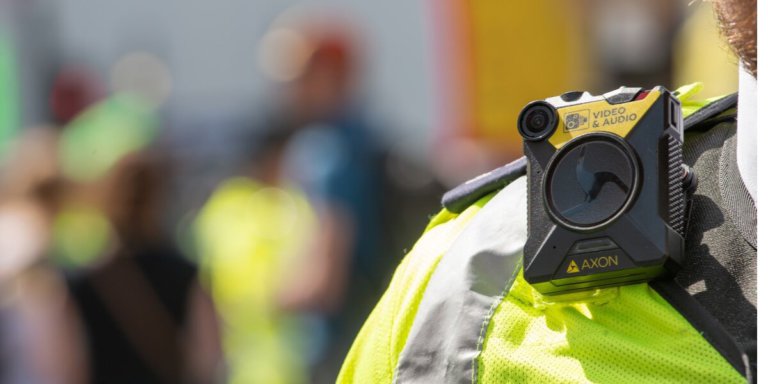
The prediction is technology will pervade schools and universities even more this year – with some schools already adopting facial recognition technology to monitor student attendance.
The latest news that some British schools are trialling body cameras worn by teachers shows that this prediction just may be right.
According to The Guardian, at least two British secondary schools have been impressed by lightweight body cameras worn by police and hope to retain them after the trial.
Larry Davis, the deputy headteacher of Southfields academy in Wimbledon, told Schools Week that body cameras by some staff members improved student behaviour and reduced the number of “dangerous confrontations” since they have been in use from the start of the school year.
“My aim is how best can we just focus on teaching and learning rather than dealing with confrontations. Since we have introduced [them] we have very few issues in regards to that – maybe once a month.”
Other schools are using it for security concerns, such as a secondary school in Hampshire who began using it after staff and a student were attacked last year.
A deputy headteacher at the school said, “The main reason we brought cameras in was not to deal with our own students but to deal with unknown children that came on to our site from other schools and the local community.”
He said that the very presence of the body cameras is effective in curbing disruptive behaviour, as the staff who wear the cameras also wear hi-vis jackets with “body-worn video” labels.
“Sometimes the fact that we approach with a camera has the desired behavioural effect without even needing to turn it on. We’re definitely going to keep going with the cameras; it’s not something we can come back from because of what it’s done for us as a tool to safeguard our students.”
Meanwhile, Suffolk County Council is reportedly requiring school crossing patrol staff to wear body cameras, leading to some controversy.
They are doing so to prevent the officers from becoming targets of abuse and aggresive behavior by motorists.
Linda Love, the School Crossing Patrol Officer at Foxhall Road Ipswich, said, “I do a very important job and my priority is the safety of the children I cross. It is unpleasant to be ignored by drivers, and it is not right that on occasion I have been sworn at by drivers within earshot of the children.”
Suffolk County Council is issuing body cameras to it’s school patrol officers.
There has been a rise in reports of abuse of lollipop men and women in the county.
Is this a good way of keeping them safe from abuse by drivers? pic.twitter.com/yy8SEPgE8f
— Mark Murphy (@MarkGlennMurphy) February 6, 2020
Reveal, a company that supplies body cameras to UK police forces and hospitals, said they have received a number of inquiries about body cameras from British schools because of staff reporting aggressive behaviour.
According to Ben Read from the company, they have developed a “softer brand” of cameras that “look less imposing and more clinical, and more like they naturally belong on a teacher or a nurse.”
However, the UK government is not backing the move by some British schools to make body cameras worn by teachers a permanent fixture.
Tom Bennett, the Department for Education’s independent adviser on behaviour in schools, told The Guardian, “Wearable CCTV is almost entirely useless in schools. It ruins the relationship between student and learner.
“There’s not much evidence that [body cameras] deter misbehaviour and plenty of evidence that they enhance the fear of crime. There may be some specific circumstances it might be useful, such as monitoring large playgrounds. But in general, I’d advise against it strongly.”







